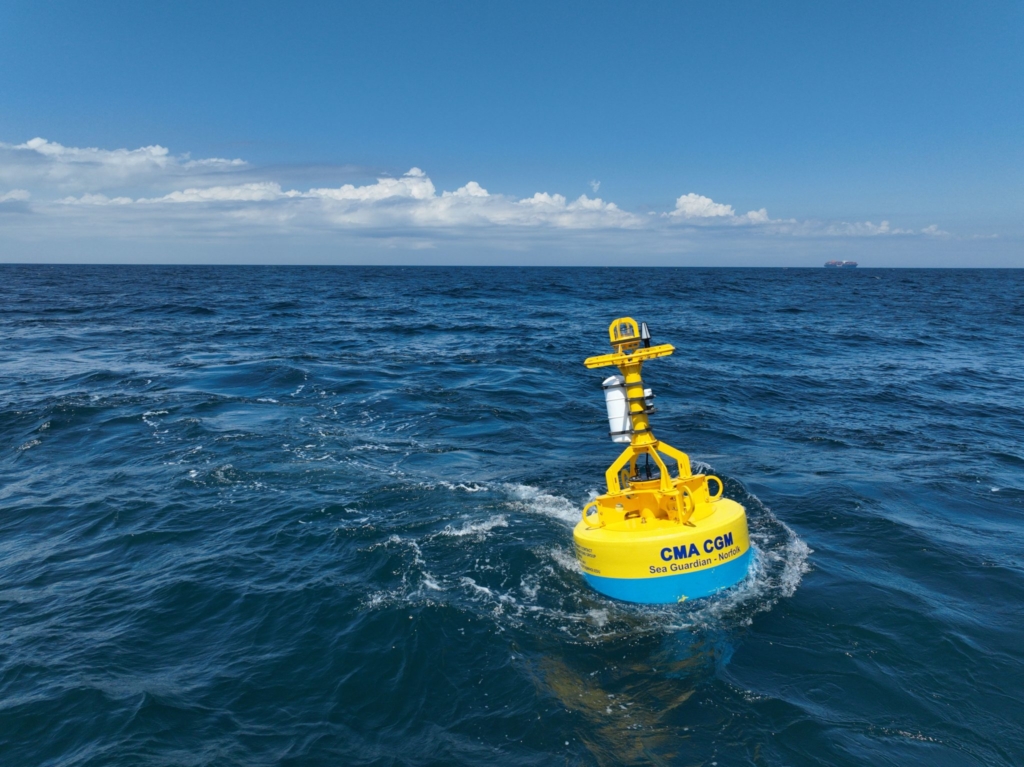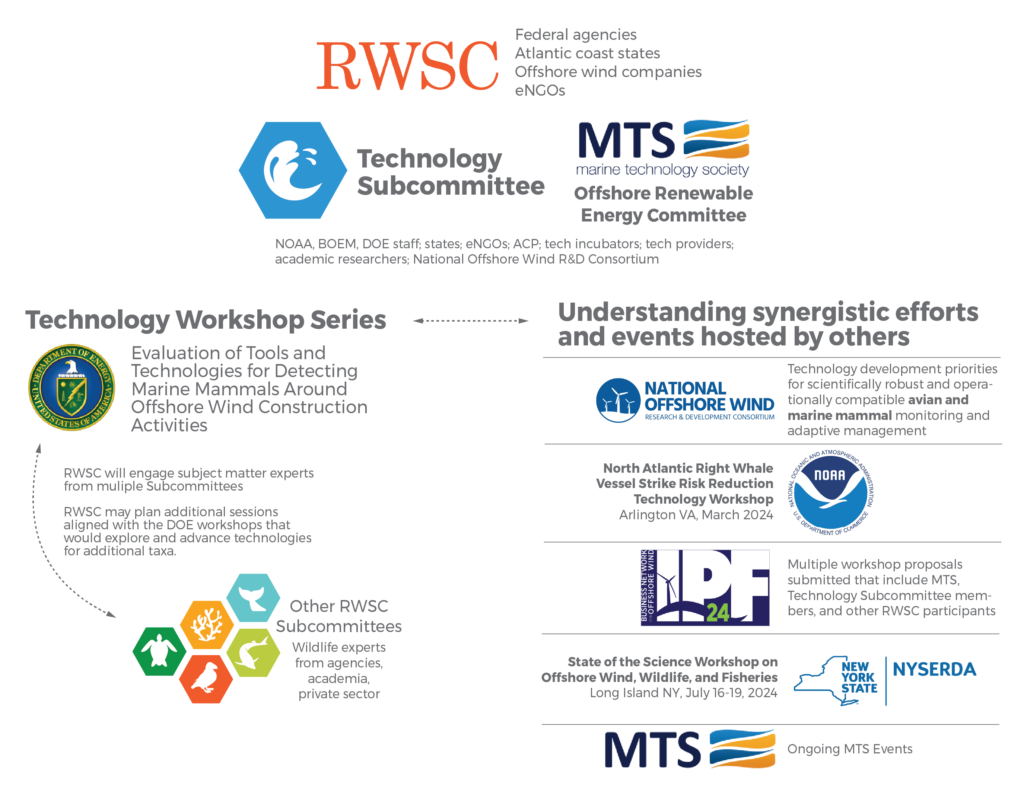
Photo credit: CMA CGM
The RWSC Technology Subcommittee is meeting jointly with the Marine Technology Society Offshore Renewable Energy Committee in 2024.
The Joint Committee is providing a forum for discussions to engage the four RWSC Sectors (federal and state agencies, offshore wind companies, and environmental nonprofits), technology providers, the wildlife research community, and other private entities to advance the findings and recommendations in the Technology chapter of the RWSC Science Plan.
Expand the tabs below to learn more about the Joint Technology Committee and upcoming events. Join the RWSC mailing list to receive event notifications and updates.
This page will be updated with workshop dates, agendas, and other information.

The joint RWSC-MTS Technology Committee, which includes members from government, the private sector, and environmental nonprofits, in partnership with two US Department of Energy (DOE) National Laboratories (the Pacific Northwest National Laboratory and the National Renewable Energy Laboratory), with support from the DOE and contributions from NOAA, BOEM, and Turn Forward, will host a series of virtual workshops aimed at assessing the state of the science regarding technologies, tools, and methods for monitoring marine mammals around offshore wind construction activities.
Please save the date for the first workshop in this virtual series on Thursday, April 18, from 1-4pm ET. Register here. The agenda and pre-workshop materials can be found here.
The RWSC-MTS Joint Technology Committee is hosting two events within the 2024 State of the Science Workshop on Offshore Wind Energy, Wildlife, and Fisheries in Stony Brook, NY from July 16-19, 2024. Registration to the State of the Science Workshop is required.
A separate registration to the Mini TechSurge will be required, with no additional fee. Details will be posted soon.
The format will include roundtable discussion with short presentations and moderated questions with goals to:
Provide feedback on potential topics
Potential topics for roundtable discussions and presentations include:
The RWSC-MTS Joint Committee is taking feedback on content and presentations for the Mini TechSurge via its regular meetings (see above).
Sponsorship available:
This event will take place during the State of the Science poster session.
Discussed format: Desktop demonstrations showcasing a range of tools and technologies offered by both technology service providers and others.
More information will be posted soon.
The RWSC-MTS Joint Technology Committee is coordinating its activities with those sponsored and hosted by partners:
The RWSC-MTS Joint Technology Committee is considering ways to engage at the MTS Oceans meeting in Halifax, Nova Scotia from September 23-26, 2024.
Abstract Submission | Due April 19, 2024: https://halifax24.oceansconference.org/submit-paper-poster/
The MTS Offshore Renewable Energy Committee is submitting an abstract to hold a town hall.